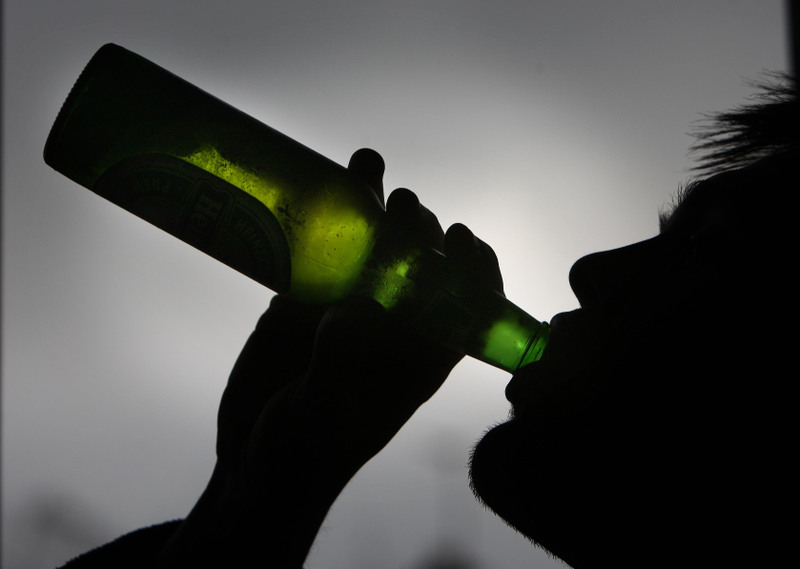Why The Drinking Age Should Be Lowered to 19
Photo by PA
June 11, 2014
What was it that sparked our generation’s bad reputation for immaturity? Haven’t our Twitter movements, increased SAT standards and apathy for growing diversity been enough to leave a mark? The assumption that lifting the “forbidden fruit” higher and higher on the tree will deter teenagers from trying to reach them is simply wrong. As an intelligent generation, we should at least be given the credit to our ideas of climbing the trunk to snatch them another way.
By making 21 the official legal drinking age, underage teens have found a desire to break that rule as an adrenaline booster from their hectic, overwhelming, stressful high school careers.
According to The National Institute of Alcohol Abuse and Alcoholism, “by age 18, 70 percent of teens have had at least one drink.” And in 2009, “nearly 10.4 million people (age 18-20) reported that they drank alcohol beyond ‘just a few sips’ in the past month.”
Looking at European societies, we’ve already seen the benefits to a lowered drinking age. In Austria, the drinking age (and also the voting age) is 16. But in Austria, they don’t have the increased stress of affording college and they don’t have television shows like Jersey Shore promoting drinking until we pass out as a new wave of American culture and comedy. And if an Austrian were to pass out at a party from excessive alcohol consumption, they would be immediately sent to the hospital as the party goers would have no fear of being punished by parents, the school or the law. Whereas in America, the implementation of frat houses and sororities and secret shacks or pathways where teenagers choose to drink allow for great safety issues if someone were to go overboard.
Additionally, Austria reported only 39 drunk driving related deaths in all of 2012, according to Statistik Austria. While Mothers Against Drunk Driving reported that nearly 28 Americans die every single day due to drunk driving accidents in the U.S. By decreasing the desire for teens to drink, the amount of drunk driving related accidents can significantly be decreased in return.
But let’s flashback to why the drinking age was raised to 21 in the first place. In 1984, congress passed a law called the National Minimum Age Drinking Act, forcing all states to abide by the underage drinking law. In response to numerous reasons, including the increase in car accidents in intoxicated teens, the development of the brain and the accessibility of alcohol to minors, the nation agreed to increase the drinking age to 21 for the rising lack of maturity in teens.
As I agree that the drinking age should absolutely not be lowered to 18, I feel that one more year in adulthood makes 19 the “magic number” in legal alcohol consumption. When we take our first steps in adulthood at 18, we have so much to experience and we are pressed with hundreds of new decisions. We can vote, buy a pack of cigarettes and even risk our lives and voluntarily join the military. But unfortunately, this new freedom, after being locked under “kid’s rules” for the first 18 years of our lives, can cause many new adults to make bad choices and dangerous mistakes. We just aren’t ready for everything life throws at us at 18. In fact, most 18 year olds haven’t even graduated high school. But at 19, we have had a full year in adulthood under our belt and a sufficient time to develop the maturity we need for our first year of college.
College acts as a buffer for underage drinkers. If the drinking age was lowered to 19, the amount of minors receiving alcohol from their older friends would still remain close to the same percentage as it stands at age 21. When we’re sent off to college we break away from our high school completely. We create a giant gap between ourselves and our 18 year old high school friends and we wouldn’t want to pass down our alcoholic purchases to those younger than us as it took so long to gain that right. Let alone the fact that we would rarely see them being so far away. But if the drinking age was lowered to 18, that accessibility to younger age groups would be blown out of proportion. As most 18 year olds are still in high school and consider themselves to be the “kings and queens” of their high schools, the rate of alcohol consumption in younger grade levels and even middle school students would drastically increase as the 18 year olds would enjoy flaunting their new freedoms.
As it stands, each state has a choice on whether or not to lower the drinking age. However, if they choose to break from the contiguous pack, they will have funding cut from the government in return. But in an effort to get past these strict laws, 29 states allow underage drinking if done on private property with parental consent, 25 states allow it if it’s for a religious purpose and 11 if it’s for an educational purpose.
The issue of underage drinking will never disappear. But the sharply increasing amount of teens that do drink can be leveled out or at least decreased. These issues take time to prevent. But ignoring the issue for sheer discomfort of approaching the topic is certainly not going to change anything. I’m not saying that we should lower the drinking age so teenagers can have an excuse to drink. In fact, I’m not saying that at all. I’m saying that with a new drinking age of 19, a full year of adulthood should allow us the ability to make a mature decision on what we choose to do with our right.


